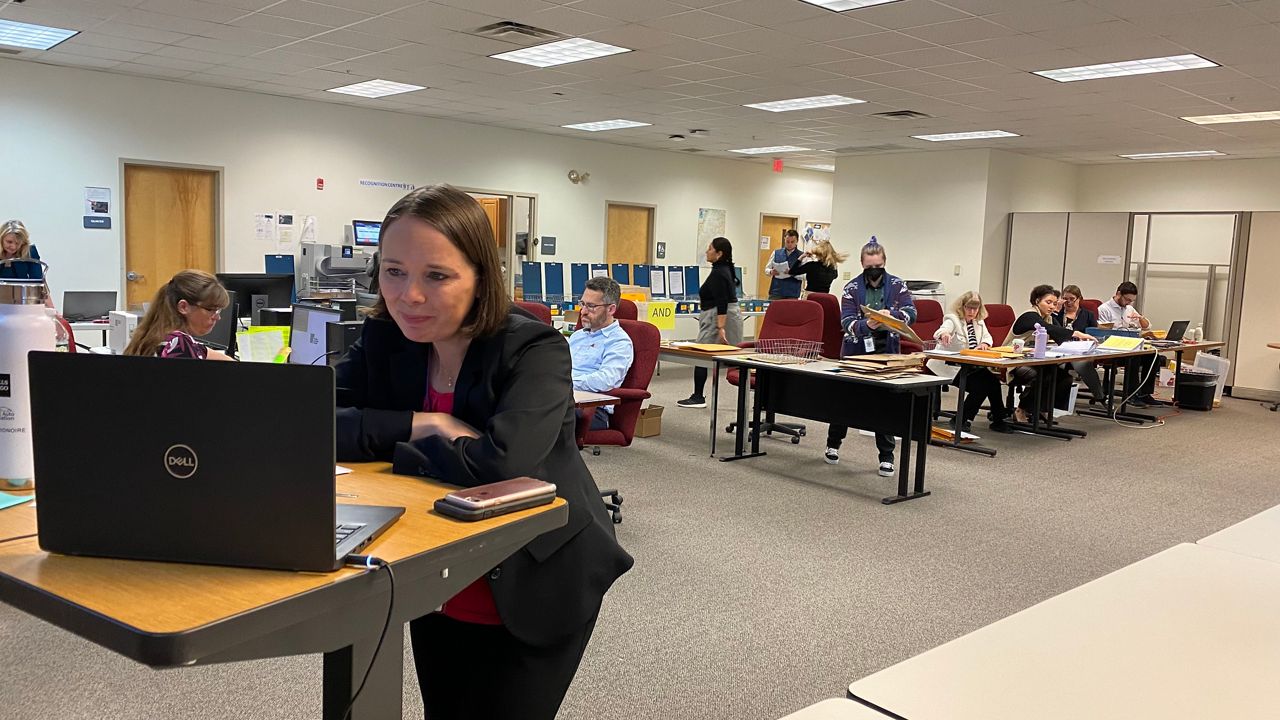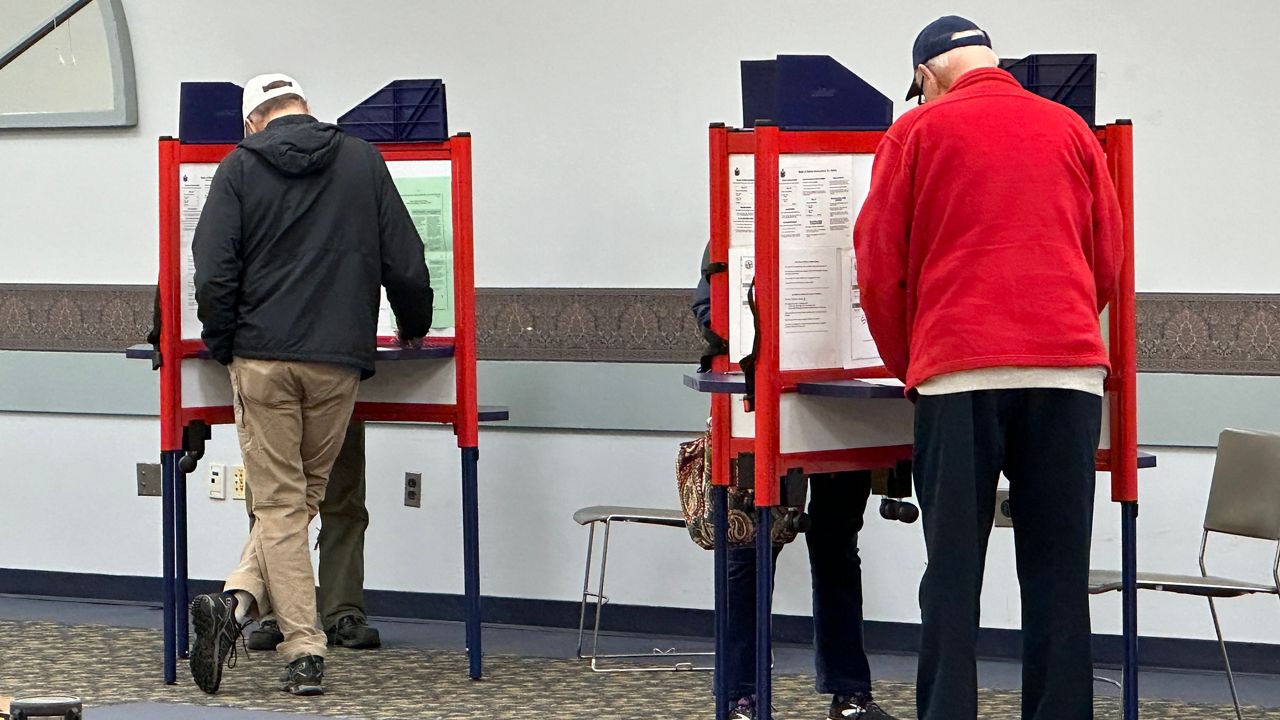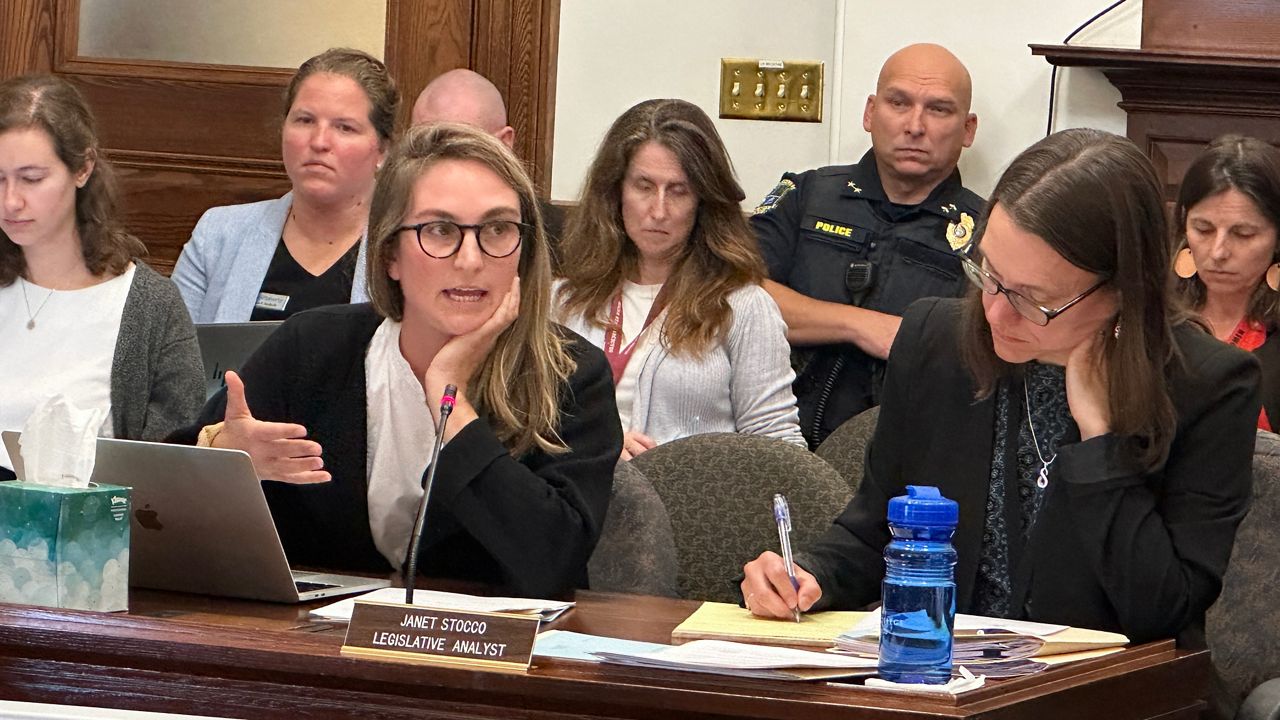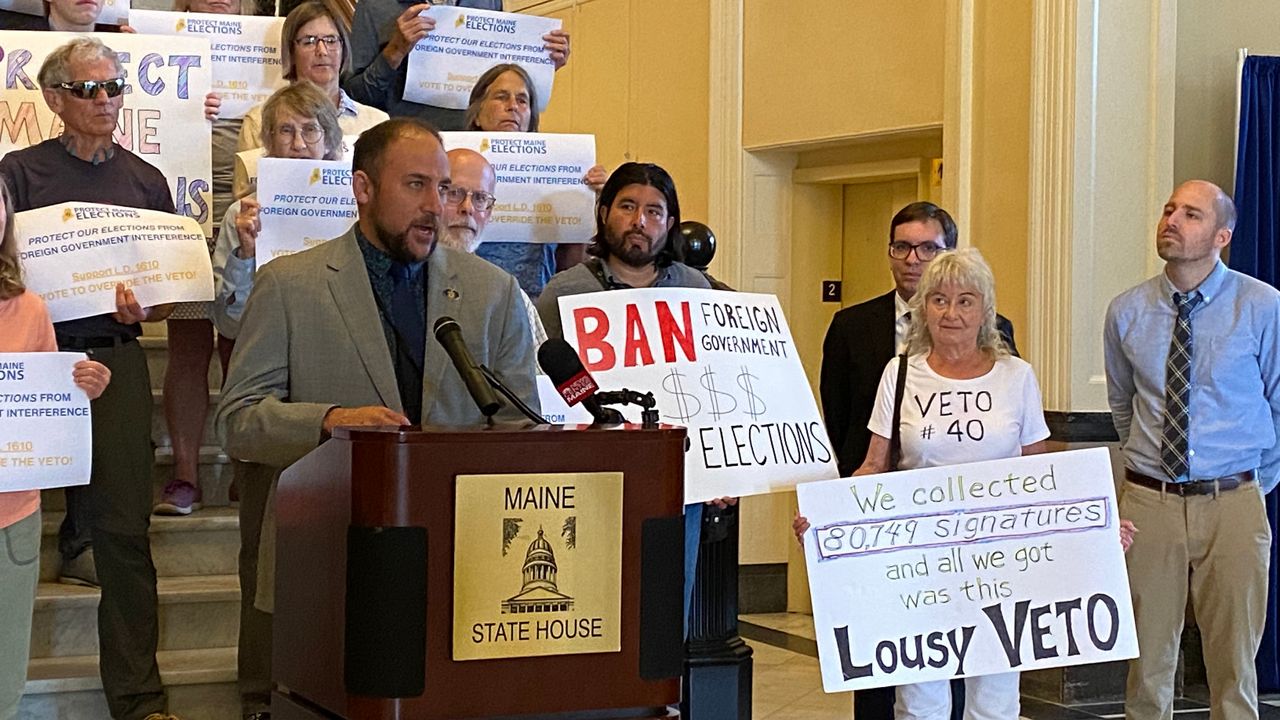A glitch with memory sticks containing vote totals from Bangor and Hampden will delay the completion of the ranked-choice voting tabulation in Maine's 2nd Congressional District until at least Wednesday.
Following 10 hours of verifying election night totals on Tuesday, Maine Secretary of State Shenna Bellows said it will now be necessary for police officers to retrieve 33 boxes of ballots from the two municipalities so they can be run through vote tabulators in Augusta.
"We are as disappointed as anybody else," Bellows said. "Every vote counts. Every vote will be counted."
There are about 12,300 votes from Bangor and more than 4,000 from Hampden.
The ranked-choice tabulation is necessary because election night results showed U.S. Rep. Jared Golden with 48%, former U.S. Rep. Bruce Poliquin with 45% and independent Tiffany Bond with 7%. Since no candidate received 50%, Maine law calls for the ranked-choice system to be used.
Approved by Maine voters in 2016, the ranked-choice system allows — but doesn’t require — voters to rank their candidates in order of preference.
When no candidate receives 50%, the last place finisher is eliminated and that person’s second place votes are reallocated to the two remaining candidates.
Golden, a Democrat, declared victory last week, telling reporters that the results were already clear.
“I am deeply honored that the people of Maine’s 2nd District have chosen me to represent them in Washington for another two-year term,” said Golden, a veteran of the Iraq and Afghanistan wars and former Maine lawmaker from Lewiston.
Poliquin has not conceded and implored Democrats over the weekend to “fix the mess they created.”
Before counting Bond’s second-place votes, the staff from the Maine Department of Secretary of State verified the tabulations and paper ballots from the sprawling 2nd District to make sure they match election night totals reported by clerks.
Although not a recount, the process is similar in that representatives for both candidates oversee the count and it is open to the public.
For Kim Pettengill, it’s a process she’s watched evolve since attending her first recount in 1974. On Tuesday, she served as a representative for Poliquin.
“This is very smooth,” she said, several hours before the tabulation was delayed. “Smoother than 2018, when it took five and a half days. The issues are minor. It’s well run.”
The 2018 ranked-choice count was the state’s first and featured Golden, Poliquin, Bond and independent Will Hoar. Back then, the ranked-choice count gave Golden a narrow victory, 50.53% to 49.47%, a margin of about 3,000 votes.
Heading in to the ranked-choice count on Tuesday, Golden is leading with 153,051 votes, Poliquin has 141,191 and Bond received 21,581.
Although there were few members of the public present to watch the count on Tuesday, Bellows kept people abreast of the action on Facebook Live — where 300 people were watching at 6 p.m. — and spoke to several television stations covering the story.
“It’s open, it’s transparent,” she said. “Nothing is happening behind closed doors.”
Bellows frequently referenced the DS850, a large ballot tabulator in the back of the room that reads paper ballots. Staff worked on laptops processing information from memory cards with vote counts.
Bellows stressed that none of the counting technology is connected to the internet, protecting it from any interference foreign or domestic.
One of the few in-person observers, Will Hayward, advocacy program coordinator for Democracy Maine, praised the ranked-choice count as the successful completion of a process approved by Maine voters.
“Seeing something like this in person is a great way to witness what the voters approved, in action,” he said. “One of the real assets today demonstrates is how publicly accessible our elections are, how if you have a question about what you’re seeing, election officials will happily explain it.”






)

